Is it TU or VOUS?
Aug 19, 2024Anglophones tend to have enough problems with tu and vous, and nobody tells us how to pronounce them well, either.
Not only that, as soon as someone asks you to “ tuvoyer”, you’re lost!
In this mini-lesson, you discover not only how to say these lovely words, but how to choose the right one, and then how to answer confidently when asked: “On peut se tutoyer”?
Another really quick mini-lesson to help you enjoy being just a little bit more French today.
Make your quick discovery with:
- The simple difference between TU and VOUS
- How to pronounce TU and VOUS
- All about that lovely verb: “Tutoyer”
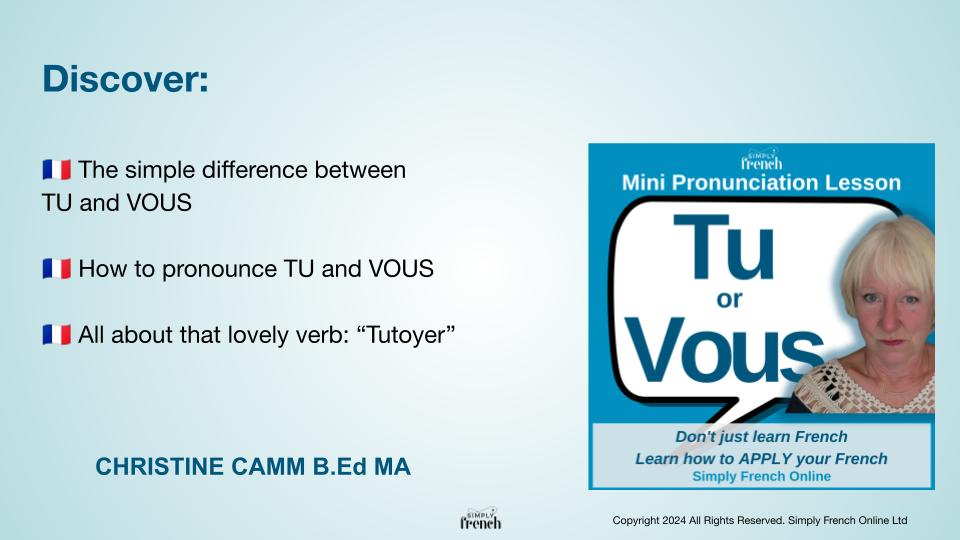
How do you translate YOU into French?
In French, there are 2 ways to translate YOU. Your options are:
- tu
- vous
Tu is always singular while vous can be used for 1 or several persons.
You need the context to pick the right option. This is what you are going to see in this mini-lesson.
Let’s dive in…
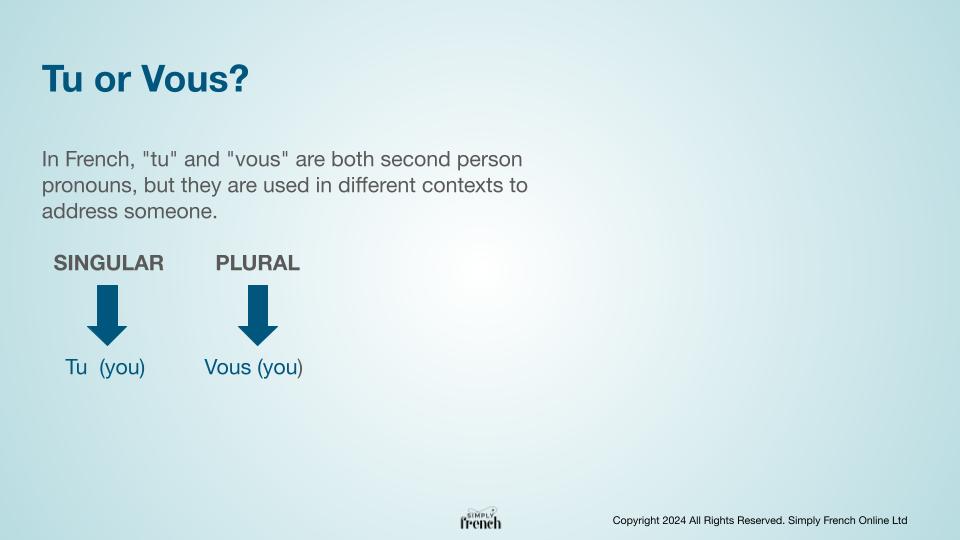
Is YOU singular or plural?
Just like I mentioned, You in French can be singular or plural. Let’s have a look at your pronouns
- Je >>> I
- Tu >>> you
- Il / elle >>> He / she
- Nous >>> We
- Vous >>> you
- Ils / elles >>> They
As you can see, tu is singular and vous is plural (with an exception…).
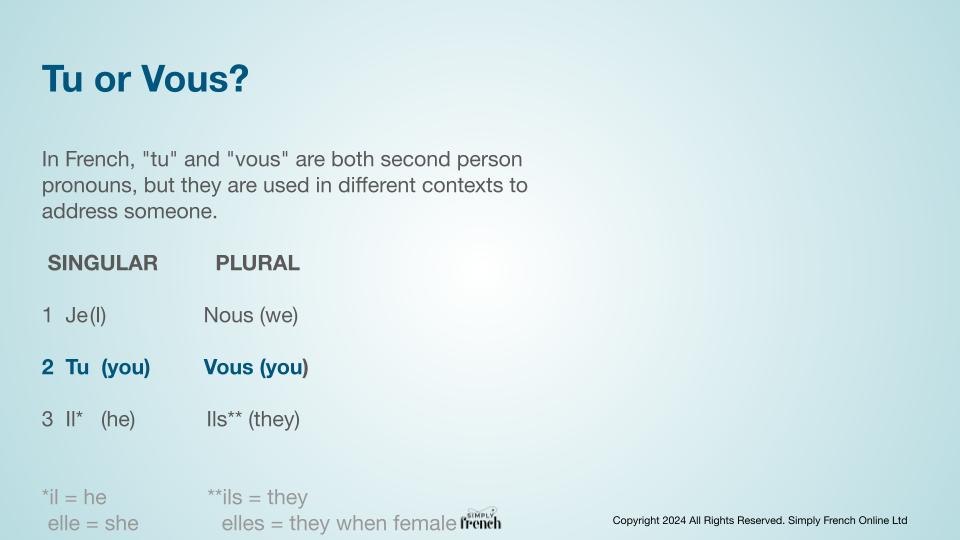
When VOUS shows respect.
And this exception is when you want to show some respect and will opt for vous.
Oui, the conjugation is like the plural vous but non, it is for one person.
What is tricky is to know if we are talking to one or several persons when we hear vous. It’s the context that gives you the answer.
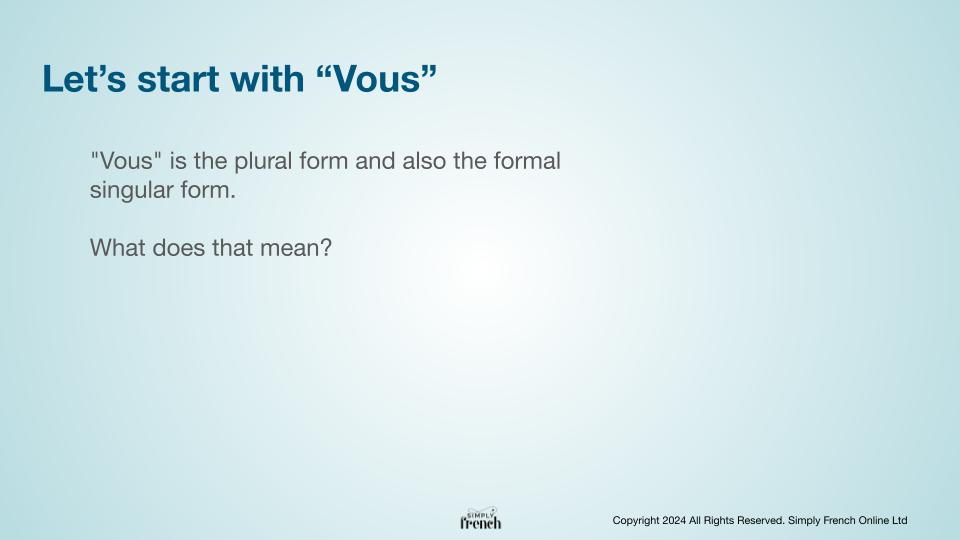
The formal vous is required in formal situations to show respect. Let’s define some formal contexts.
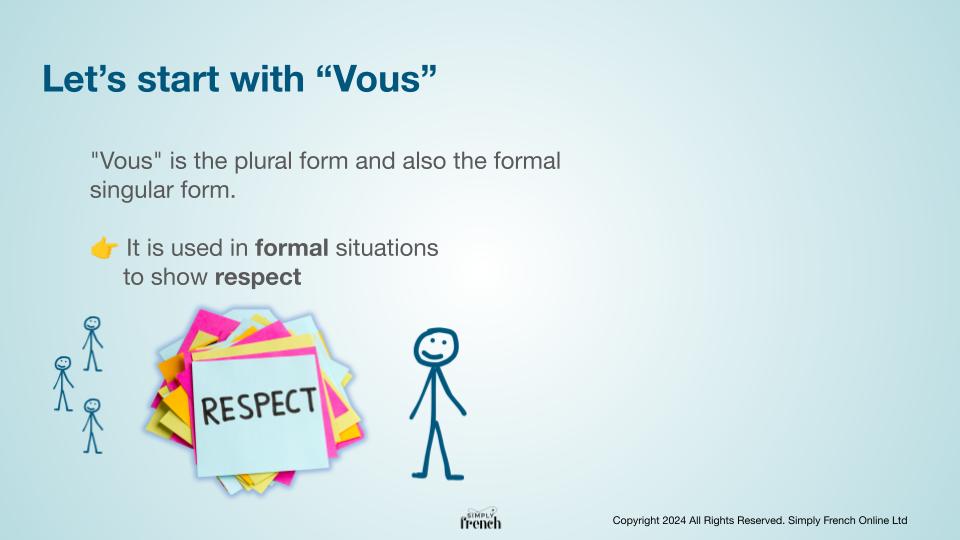
For instance, if you are talking to someone older than you.
- Bonjour madame Renault. Vous allez bien ? >>> Good morning Mrs Renault. Are you well?
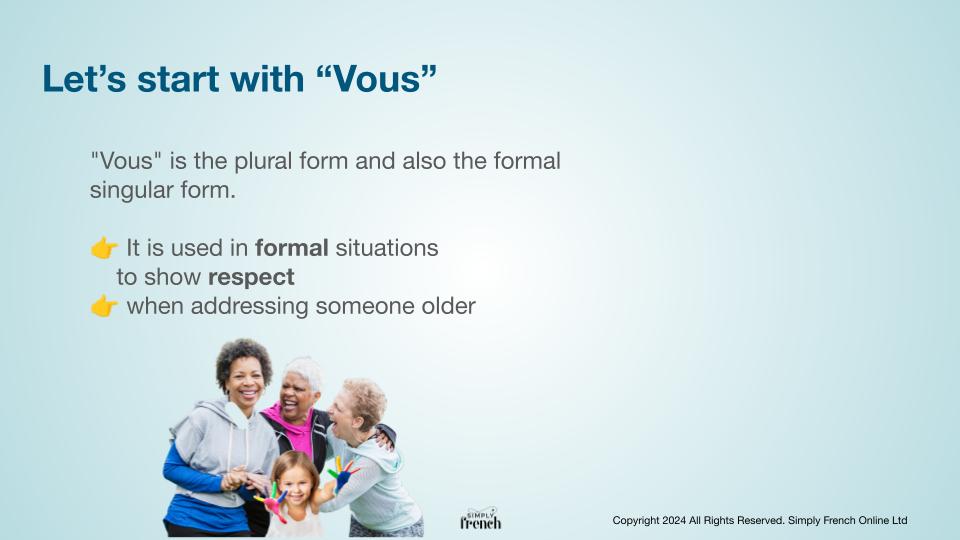
The vous is necessary if you talk to someone in a higher position like your boss.
- Vous voulez du café pour la réunion, monsieur ? >>> Do you want some coffe for the meeting, sir?
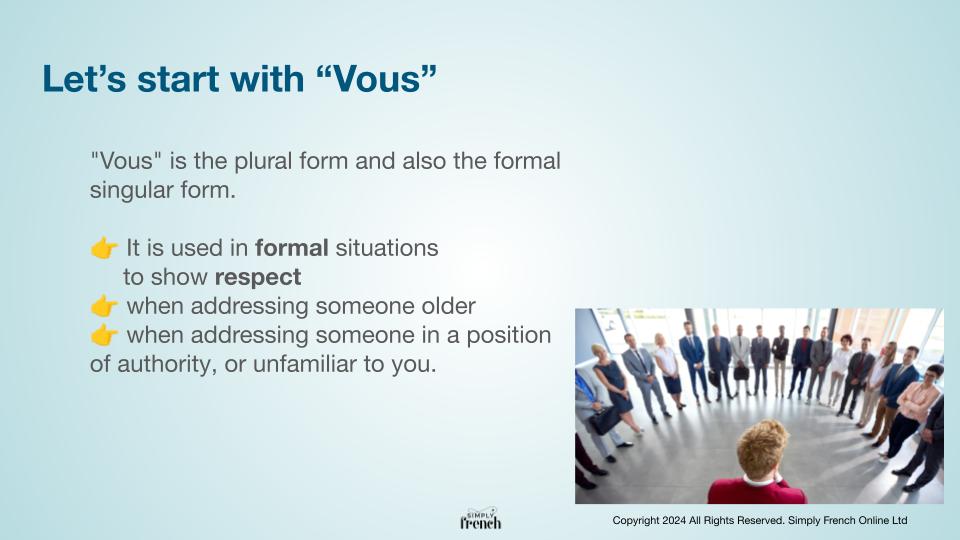
Whenever you talk to someone you don’t know, you would start with vous.
- Vous avez besoin d’aide madame ? >>> Do you need any help madam?
And finally, if you are addressing multiple people, the vous is natural.
- Vous allez au cinéma ce soir ? >>> Are you going to the theater tonight?
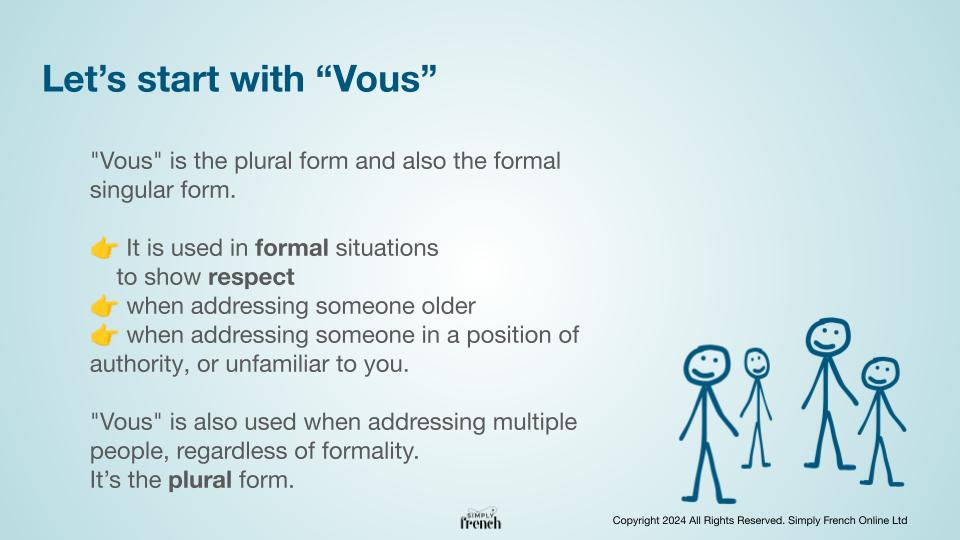
Use VOUS with teachers.
Usually, we pay respect to teachers. Therefore, the common way is to use vous.
- Vous pouvez m’expliquer de nouveau s’il vous plaît ? >>> Can you explain it again please?
In some cases, you may feel close to your teacher and could switch to tu.
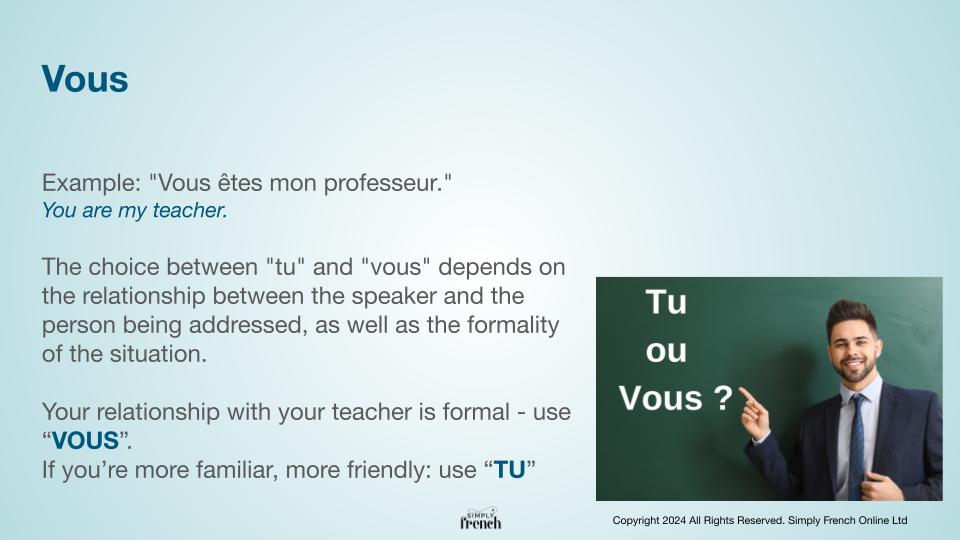
What does TU mean and involve?
Time to talk about tu. It’s only for one person and someone you know very well.
- Tu vas bien ? >>> Are you well?
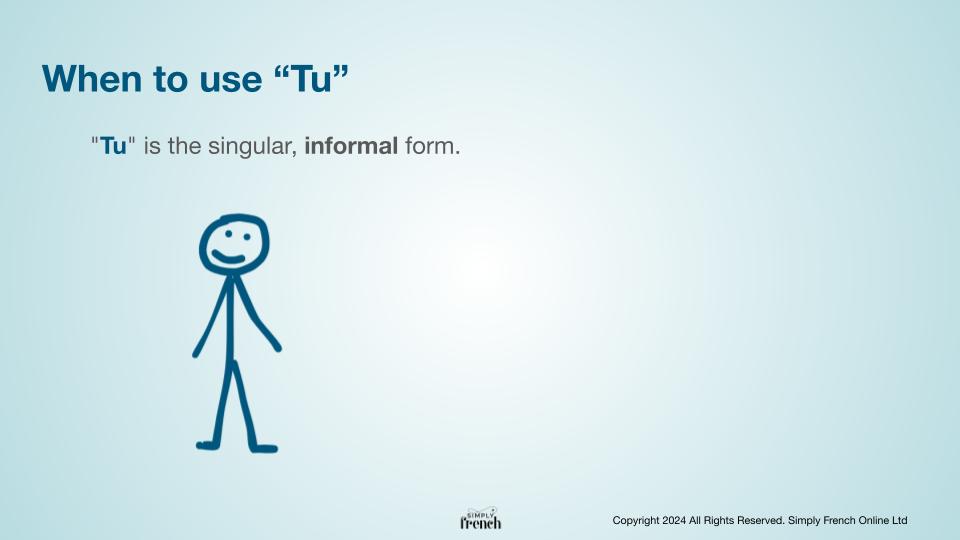
When should you pick TU?
The main question is: When do you use tu? As we just said, with someone you know very well like a friend.
- Tu es mon ami. >>> You are my friend.
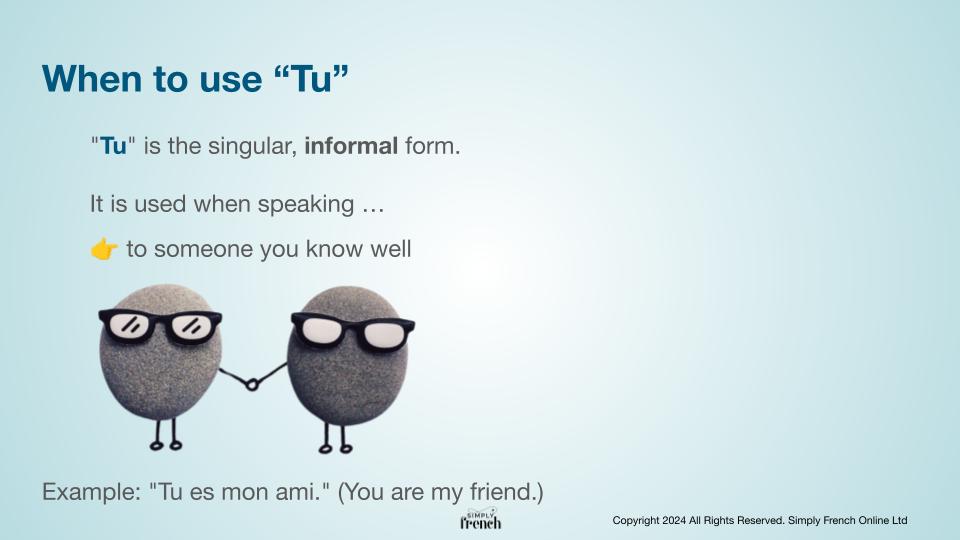
It is also common to address children with the tu.
- Tu es le fils de mon ami. >>> You are my friend’s son.
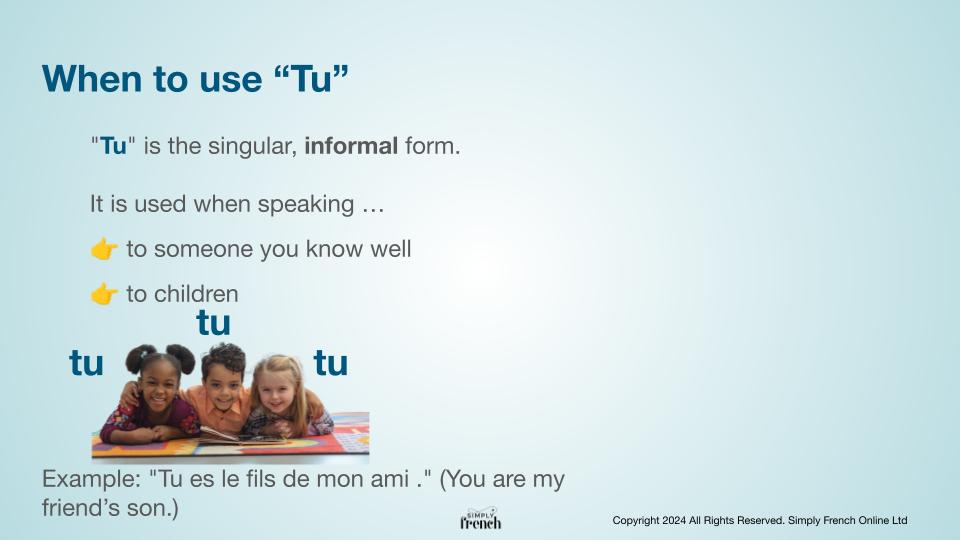
And, in general with your friends, family members, and peers like this:
- Tu es mon frère, et toi, tu es mon ami. >>> You are my brother, and you, you’re my friend.
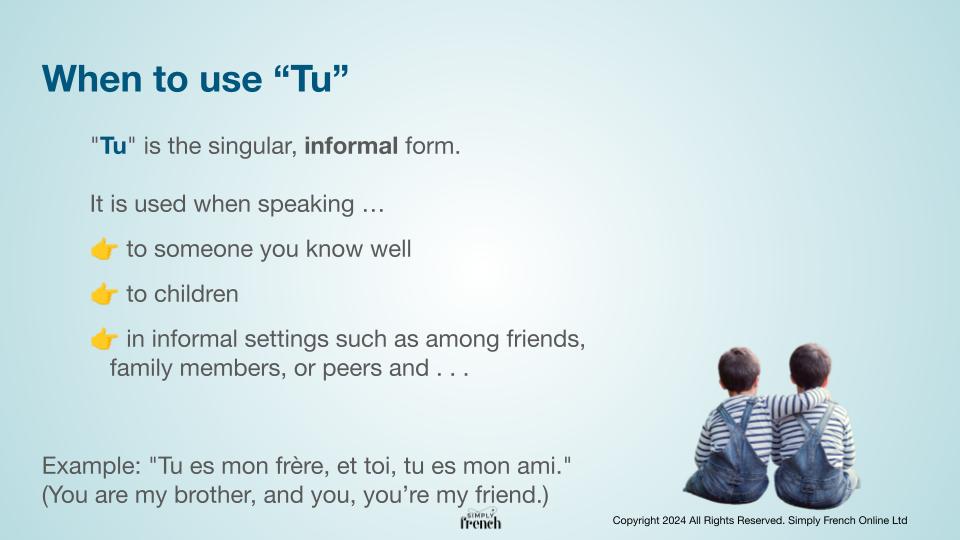
Fun fact: you also use tu with your pets!
- Tu es adorable mon chien ! >>> You are adorable, my dog!
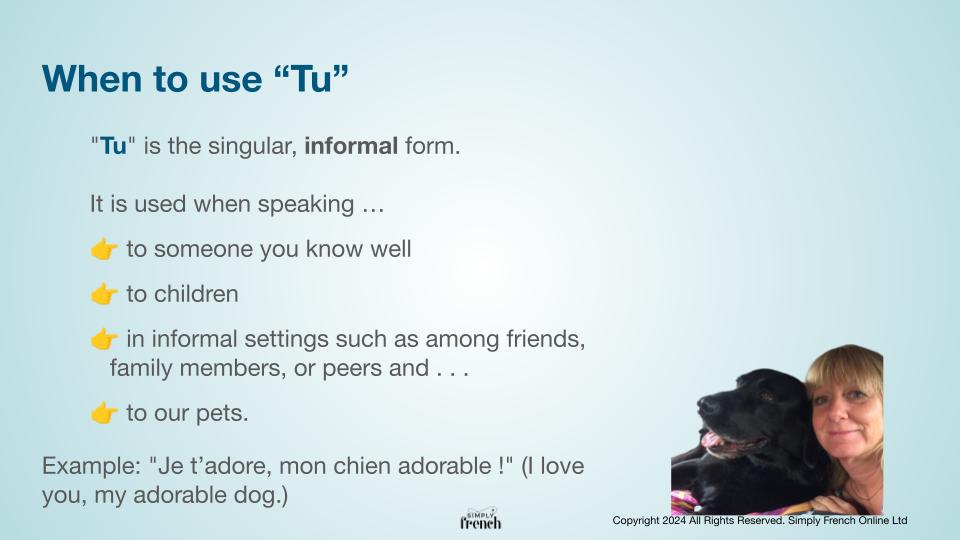
Don’t worry if you mix them up!
Something important to note: if you are a beginner or learner in French, people will not mind if you mess it up. Here’s an example of a “mistake”:
- Tu as du pain sans gluten ? >>> Do you have gluten-free bread?
In this case, your baker is not your friend (usually) and you should choose the vous.
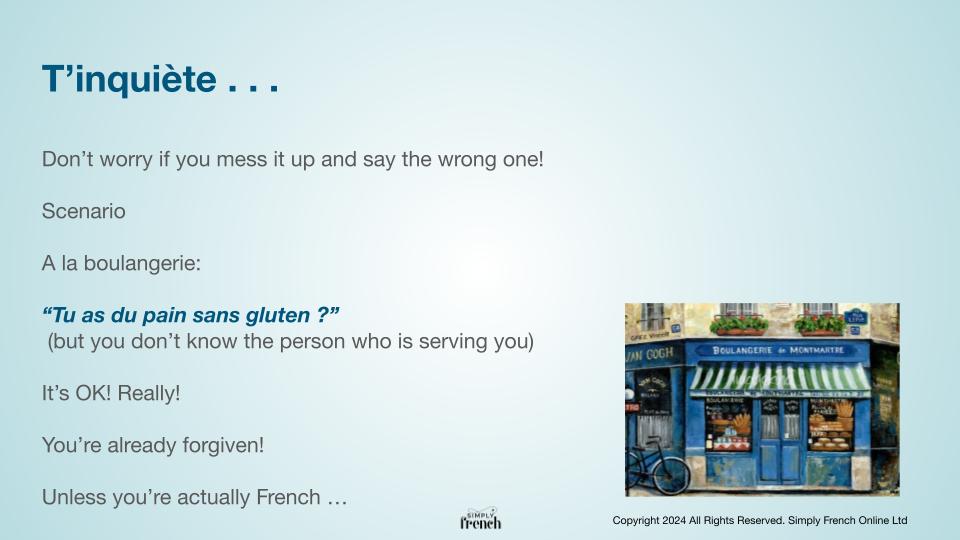
When NOT to use TU.
With your boss and your colleagues, avoid the tu. Unless they permit you.
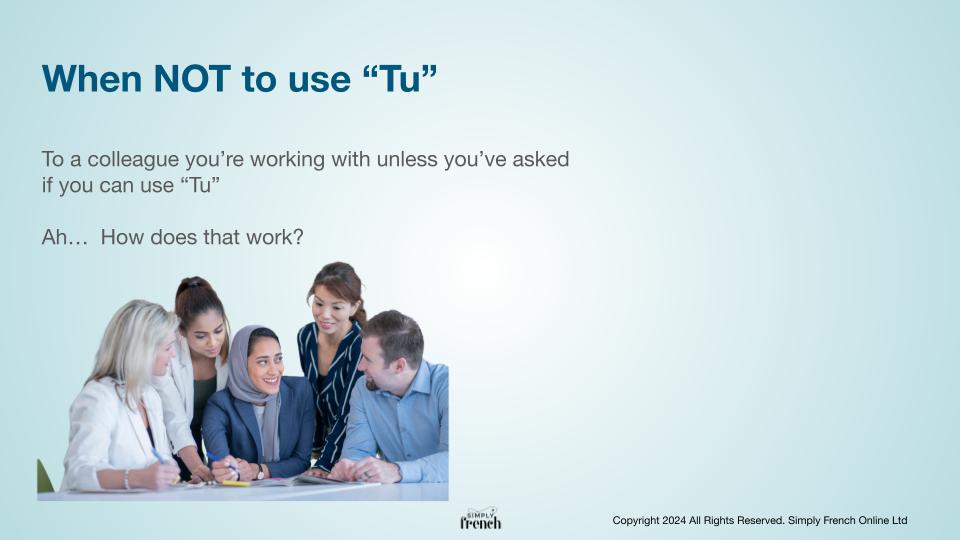
Is it VOUS or TU?
While in English you never need to ask yourself this question, in French, you should always contemplate the context because if you use tu instead of vous, it may sound rude.
On the contrary, if you address someone with vous, you are safe.
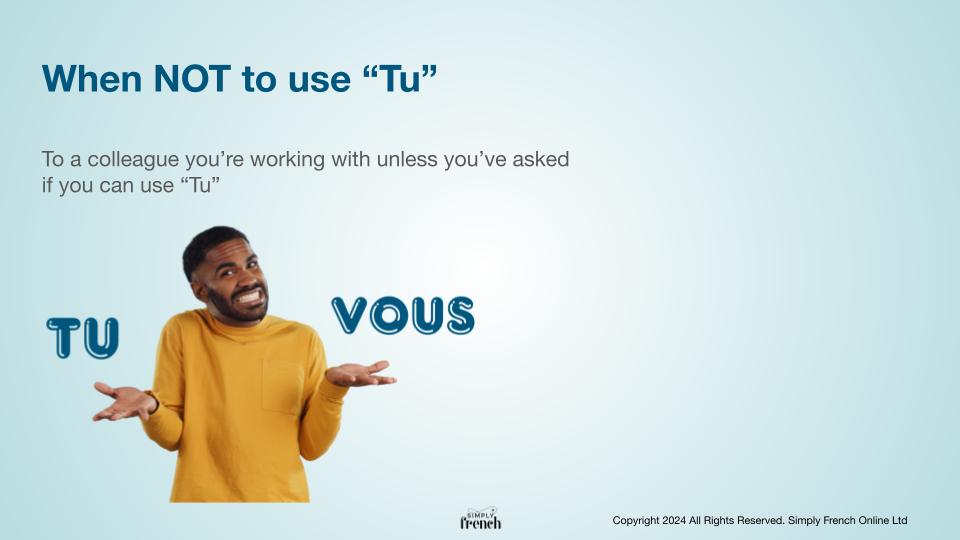
Always start with VOUS then switch to TU.
My tip for you is to ALWAYS start with vous. Wait for the person to give you the permission:
- Tu peux me tutoyer. >>> You can say tu.
Indeed, the verb tutoyer is the opposite of vouvoyer. The first one refers to the fact to use tu and the other to vous.
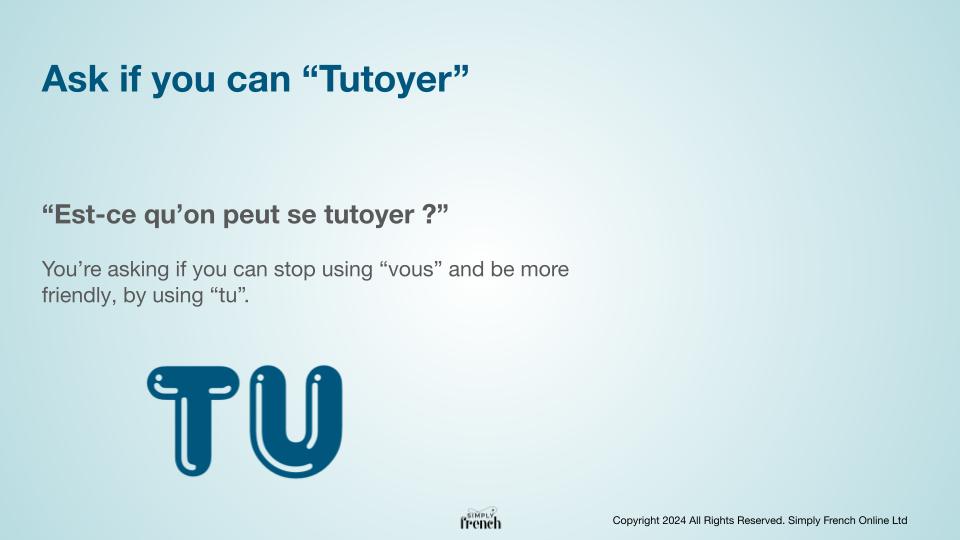
If you are not sure what to say, ask for the permission yourself:
- Est-ce qu’on peut se tutoyer ? >>> Can we use tu?
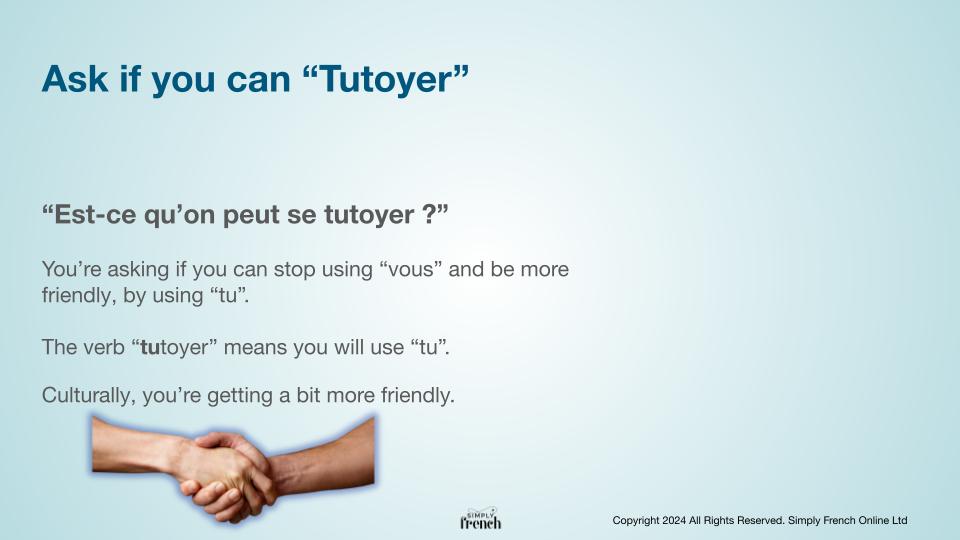
Tips to remember these 2 French words.
Which is one is best and when?
First, don’t panic! You’ll be forgiven as a French learner.
Then, always start safe with vous and wait for the permission to switch to the tu.
If you doubt, you can always ask for the permission with “Est-ce qu’on peut se tutoyer ?”.
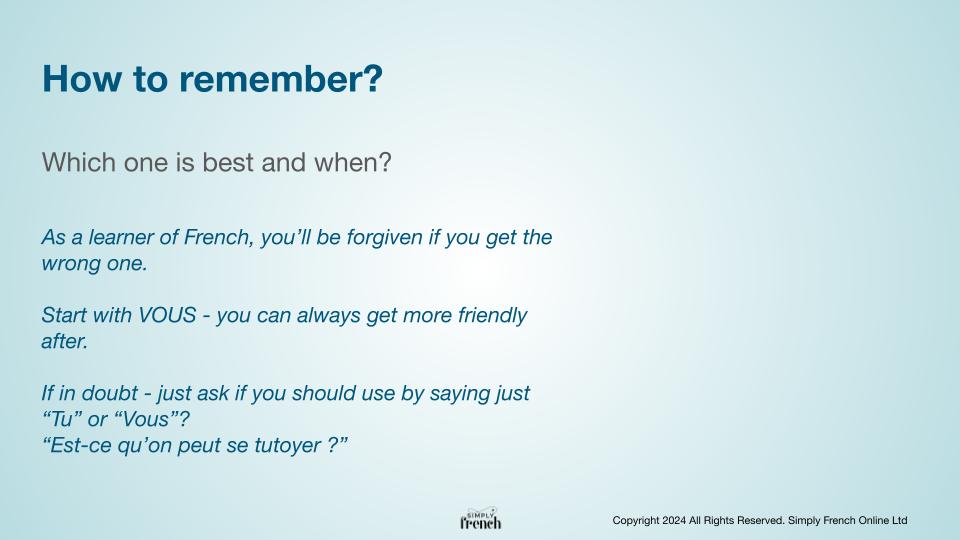
Here are other mini-lessons to help you:
PSST . . . If you haven't seen my FREE masterclass to work out what's holding you back from speaking French with more confidence (it’s my speciality) then click here: 👉🏾 FREE MASTERCLASS
Be honest, do you always start with vous or tu?
Free Masterclass
Learn my 4 step method of how to hold meaningful french conversations the R.E.A.L. way in just 30 minutes a day.
When you signup, we'll be sending you weekly emails with additional free content

